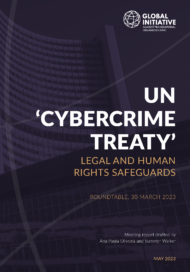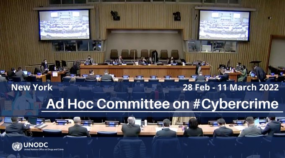Posted on 20 Nov 2017
What exactly are the Transformation Maps?
Transformation Maps are the World Economic Forum’s dynamic knowledge tool. They help users to explore and make sense of the complex and interlinked forces that are transforming economies, industries and global issues. The maps present insights written by experts along with machine-curated content. Together, this allows users to visualise and understand more than 120 topics and the connections and inter-dependencies between them, helping in turn to support more informed decision-making by leaders.
Illicit Economy map – Co-curated by the GITOC
The negative effects of the burgeoning illicit economy are increasingly being understood as a major impediment to global economic and social development.
A 2015 study by the Global Initiative against Transnational Organized Crime on Organized Crime as a Cross-Cutting Threat to Sustainable Development identified that organized crime could prevent the achievement of as much as 23% of the 2030 Sustainable Development Goal targets.
Harnessing the illicit trade of people, goods, drugs, money, intellectual property and environmental resources, criminal networks have expanded into multi-billion dollar syndicates. Fuelled by the same forces that have expanded trade, communication and information exchange worldwide, illicit trade and criminal syndicates undermine the competitiveness of companies, the integrity of governments and state institutions and the security of nations and communities. Organized crime preys on almost every aspect of society, both in the developed and the developing world.
This briefing is based on the views of a wide range of experts from the World Economic Forum’s Expert Network and is curated in partnership with Mark Shaw and Tuesday Reitano, Director and Deputy Director of the Global Initiative against Transnational and Organized Crime.



